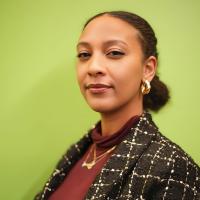Health Equity
The CDC defines health equity broadly as "a state in which all people can attain the highest level of health" and quality of life, regardless of their identity or social position/context." As osteoarthritis (OA) is currently the third leading cause of disability in the United States and aligned with the key goals of the NITRO program, the NOVAJoint team is placing health equity at the forefront of our approach to clinical trial research, accessibility, and patient representation. A full-time Equity Officer will serve on the leadership team to develop and enforce the NOVAJoint Equity Plan (EP).
Equity Governance Structure:

The EO will execute the EP with the guidance of advisors under an Equity Governance Structure. This will be composed of three spheres of influence: (1) the Research Team, (2) the Patient Team, and (3) the CBO team.
Equity Advisory Board:
Composed of 5 clinicians/researchers from across Columbia University Medical Center and the University of Missouri, the NOVAJoint MPIs, and (in later quarters) a Clinical Coordinator.
Equity Advisory Board
Alejandra Aguirre, DrPH, MPH
- Assistant Director of CECR, Assistant Professor of Community Health Initiatives in Medical Humanities and Ethics

Lisa A. Royse, PhD
- Assistant Research Professor, University of Missouri
Dr. Royse(link is external and opens in a new window) leads patient engagement in research and qualitative research for the Department of Orthopaedic Surgery. She is dedicated to building patient-researcher partnerships that support and enable improved health outcomes and health care experiences. She is the Project Lead of a Patient-Centered Outcomes Research Institute (PCORI) Eugene Washington Engagement Award that supports development of the Patient AdvisoR Team iN Orthopaedic ReSearch (PARTNORS) program(link is external and opens in a new window). PARTNORS focuses on building infrastructure for more meaningful patient engagement in research by involving and collaborating with patient partners to identify research areas important to them and co-create patient-centered outcomes research. Her experience also includes providing qualitative methods expertise for two Agency for Healthcare Research and Quality (AHRQ)-funded pilot projects through MU’s Center for Patient-Centered Outcomes Research aimed to design better pain assessment measures and pain education in health care. Before joining the Department of Orthopaedic Surgery, Dr. Royse led programmatic evaluation and technological innovations for MU School of Medicine’s Office of Medical Education.

Nana O. Sarpong, MD, MBA
- Assistant Professor of Orthopaedic Surgery, Assistant Attending
Nana Sarpong, MD, MBA, is a fellowship-trained orthopedic surgeon specializing in hip and knee reconstruction. He is skilled in minimally invasive techniques, including partial knee reconstruction, primary hip replacement (both direct anterior and mini-posterior hip approaches), knee replacement, hip resurfacing, and complex primary and revision hip and knee replacement after failed surgeries. His practice leverages advanced technologies, including computer-assisted navigation and robotics, and offers the latest evidence-based surgical and nonsurgical treatment options. Based on a rigorous process to identify healthcare providers with a high degree of peer recognition and professional achievement, Super Doctors named Dr. Sarpong one of New York's Rising Stars of 2023.

Wakenda Tyler, MD, MPH
- Associate Professor of Orthopaedic Surgery, Associate Attending
Wakenda K. Tyler, MD, MPH specializes in the treatment of benign and malignant tumors of the bones and soft tissues in patients of all ages. As a musculoskeletal oncologist, Dr. Tyler’s practice is focused on the non-operative and operative management of primary soft tissue and bone cancers, sarcomas, and metastatic bone cancer. Dr. Tyler’s goal is to provide compassionate surgical care that achieves cure of cancer whenever possible by leveraging the latest advances in non-operative management, minimally invasive, and reconstructive surgical techniques. When cure is not possible she strives to achieve pain control and improve function as best as possible for every patient.

Community-Based Organizations (CBO) and Patient Parnerships:
NOVAJoint has proposed a robust Community Engagement Plan, incorporating community-based organizations (CBOs) and patient advocates as formal partners who will advise the Equity Officer on the project’s Equity Plan. This partnership will serve two purposes: to serve on the Equity Governance Board as formal advisors, and to help recruit participants. Other community leaders may be identified through various engagement methods as well.
The Patient team will be made up of patient advocates at least 45 years old with an OA diagnosis, representing various major racial/ethnic/gender communities.
Community Engagement Framework and Praxis:
Contact Us
Omneya Ghanem, MPH
- og2333@cumc.columbia.edu





